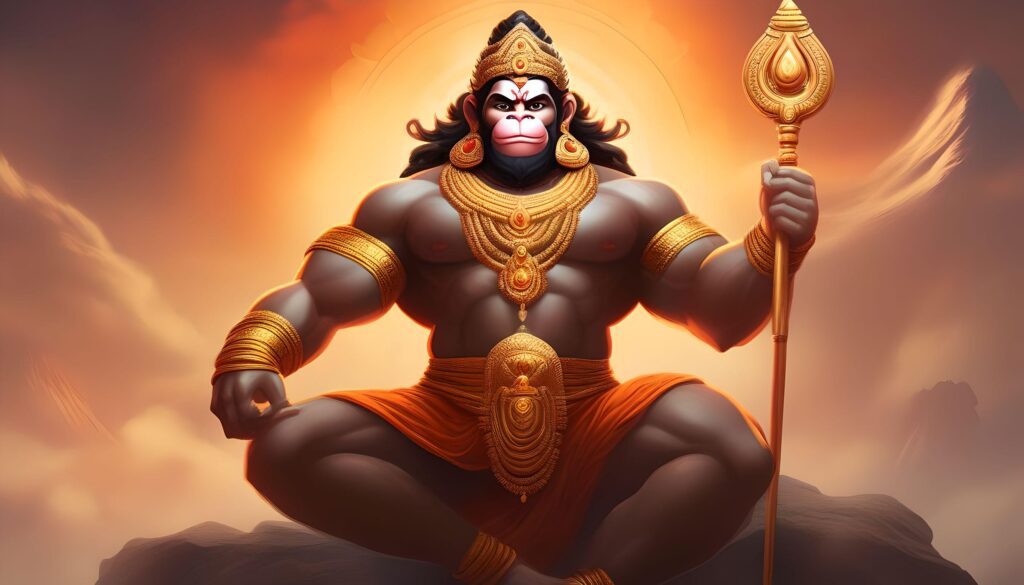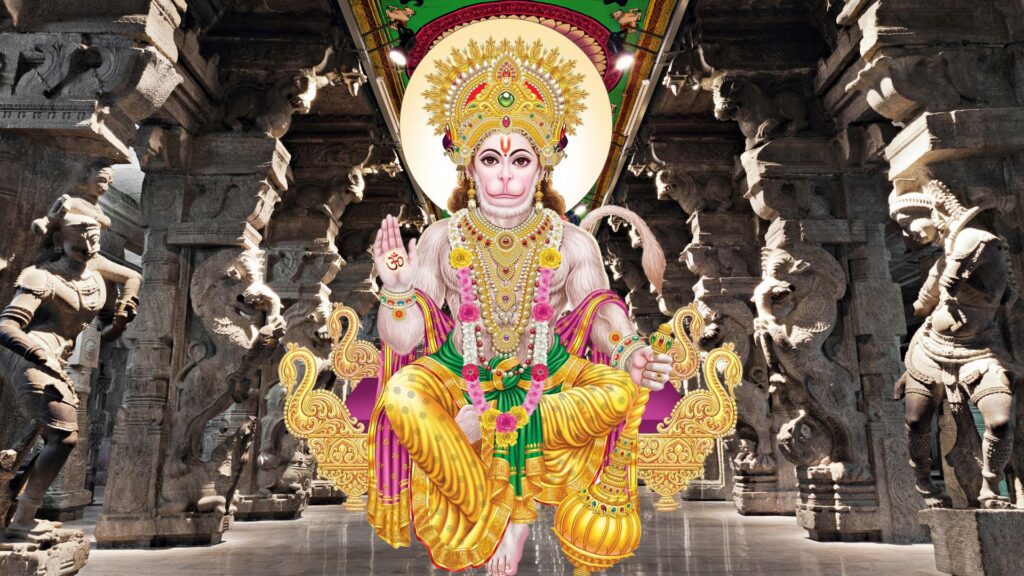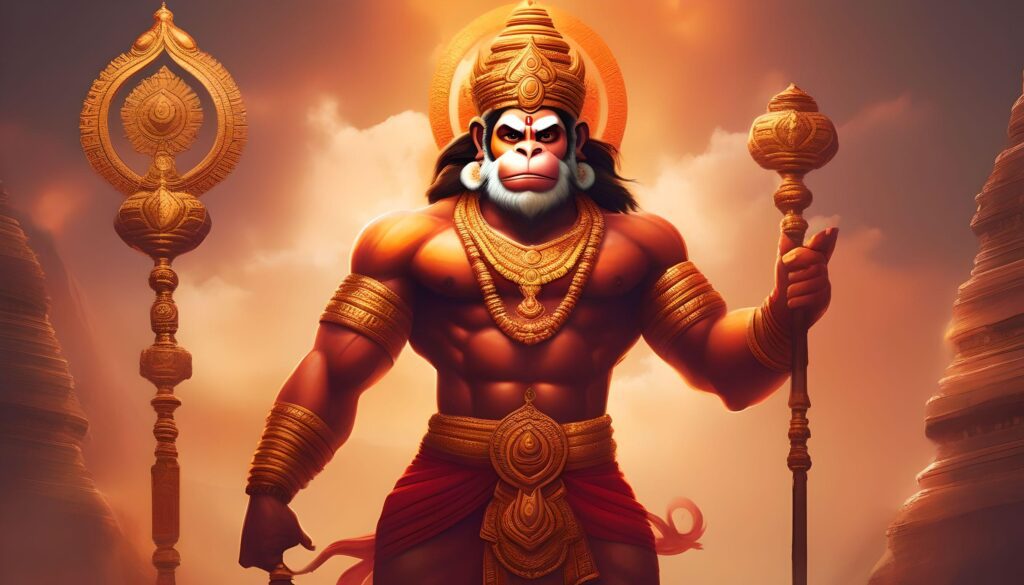Hanuman Jayanti: Auspicious Celebration of Lord Hanuman’s Birth
Lord Hanuman occupies a prominent status within the Vedic tradition as one of the preeminent and widely venerated deities. Hanuman, revered for his supreme power, unwavering loyalty, and altruistic compassion, is regarded as the patron deity of wrestling and personifies courage. Hindus observe Hanuman Jayanti, a magnificent festival honoring the deity’s birth. This article delves into the historical, cultural, and mythological aspects pertaining to Hanuman Jayanti.
Date and Observance
The dates on which Hanuman Jayanti is observed vary from region to region in India. In contrast to the majority of regions, which observe it on the Purnima day of the full moon in the Chaitra month (March or April on the English calendar), South India observes distinct customs. The celebration of Hanuman Jayanti takes place in Tamil Nadu and Kerala during the Margashirsha Amavasya, which occurs on the day of the new moon. It is a festival observed in Andhra Pradesh and Telangana on the tenth day of the Krishna Paksha during the Vaisakha month. This auspicious festival is observed in Karnataka on the Shukla Paksha Trayodashi (the thirteenth day) of the month of Margashirsha and in Odisha on the first day of the month of Vaisakha.
Mythological Significance of Hanuman Jayanti
As per Hindu mythology, Lord Hanuman is held in the highest regard as the preeminent entity across all domains and is considered an incarnation of Lord Shiva (11th Rudra). A pivotal figure in the Hindu epic Ramayana, he is portrayed in the guise of a Vanara, a humanoid resembling a monkey. The purpose of Hanuman’s conception was to aid Lord Ram in his divine mission.
Celebration of Hanuman Jayanti
Hanuman Jayanti is an auspicious day for devotees to visit Hanuman temples and offer prayers. As it was just before dawn that Lord Hanuman was born, festivities commence. In addition to sacred bathing, devotees engage in a variety of rituals. In addition to performing Aarti and Pradakshina, they bestow red tilak (vermillion) on the forehead of the Hanuman idol, recite mantras and hymns, present diyas and sweets as Prasad, and offer Prasad and Aarti. Additionally, the devotees recite passages from the Ramayana, specifically the Sundarakand. They distribute Prasada and apply red sindoor to their foreheads following the puja.
Sacred Mantras for Hanuman Jayanti
It is believed that reciting sacred mantras honoring Lord Hanuman on Hanuman Jayanti will aid in regaining vigor and confidence, as well as yield favorable outcomes. The following mantras are frequently recited:
- Om Hanumate Namah: This mantra invokes the protection and favors of Lord Hanuman.
- Hang Pawan Nandnaay Swaahaa: It is said that by reciting this mantra, one’s physical and mental fortitude will develop.
- Hang Hanumate Rudraatmakaay Hung Phatt: It is believed that this mantra can eliminate all obstacles and negative energies.
- Om Namo Bhagvate Aanjaneyaay Mahaabalaay Swaahaa: This mantra solicits the favors of Lord Hanuman and extols his immense power.
- Om Anjaneyaya Vidmahe, Vayuputraya Dhimahi, Tanno Hanumat Prachodayat: This mantra serves as a profound invocation to Lord Hanuman, petitioning for his counsel and sagacity.
Significance of Hanuman Jayanti
The Hanuman Jayanti is a day of great importance in Hinduism. As the eleventh Rudra incarnation of Lord Shiva, Lord Hanuman is venerated as an emblem of fortitude, erudition, and devotion. On this auspicious day, devotees believe that by worshiping Lord Hanuman, it is possible to attain these virtues. Hanuman is considered the preeminent devotee of Lord Ram, and it is postulated that the only means of attaining Lord Ram is via Lord Hanuman. Additionally, his benevolence and concern for his devotees are well-known. It is believed that reciting the Hanuman Chalisa can assist one in overcoming life’s afflictions and challenges.
Legends Associated with Hanuman Jayanti
As per a well-known legend, the birth of Lord Hanuman occurred during the nocturnal void. Kesari, his father, was an offspring of Lord Brihaspati, while Anjana, his mother, was a celestial being doomed to mortal existence. Twelve years after dedicating herself to the worship of Lord Shiva, Anjana conceived Lord Hanuman. Hanuman is therefore a manifestation or reflection of Lord Shiva.
An additional anecdote from the epic Ram Charita Manas describes the significance of Vayudev, the wind god, in the origin of Hanuman. Vayu is said to have been instrumental in the transfer of Lord Shiva’s energy to Anjana’s womb, thereby facilitating the conception of Hanuman. As a result, Hanuman is frequently denoted as Vayuputra.
Conclusion
Hanuman Jayanti is a momentous occasion commemorating the birth of the esteemed Hindu deity Lord Hanuman. The festival carries profound mythological importance and is eagerly anticipated with considerable devotion and fervor throughout various regions of India. Devotees venerate Lord Hanuman, seek his blessings for fortitude, knowledge, and devotion, and recite sacred mantras in his honor. During Hanuman Jayanti, one should contemplate the laudable qualities exhibited by Lord Hanuman and his steadfast devotion to Lord Ram. May the observance of Hanuman Jayanti bestow upon all individuals happiness, prosperity, and spiritual enlightenment.
#hanumanjayanti #hanuman #हनुमानजयंती #हनुमान #celebration #mantrasforhanumanjayanti #mantras #jaihanumanji #hanumanfestival #bajrangi #hanumandada #hanumanmandir #ayodhya #pawanputrahanuman #kashtbhanjandev #hanumantra #lordram #hanumanbhakt #hanumanstatus #hanumanchalisa



